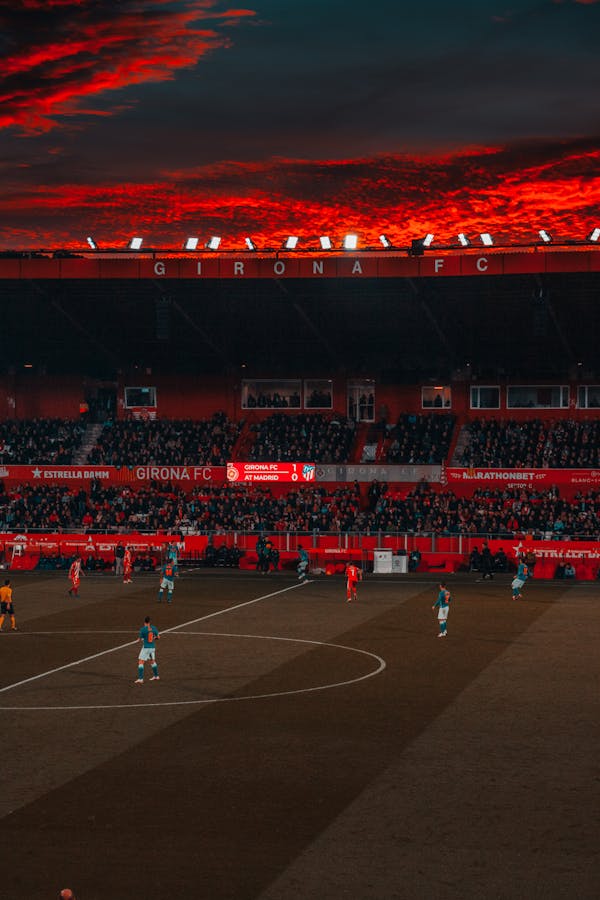Introduction
FIFA, the acronym that is synonymous with international football governance and the organization responsible for organizing the FIFA World Cup, stands for "Fédération Internationale de Football Association" in French. Translated into English, it means the "International Federation of Association Football." This organization serves as the global governing body for the sport of football, overseeing its rules, regulations, competitions, and development worldwide.
Origins and Establishment
Early History
FIFA was founded on May 21, 1904, in Paris, France, with the initial aim of standardizing the rules of football and promoting its international spread. The founding members included representatives from France, Belgium, Denmark, the Netherlands, Spain, Sweden, and Switzerland. The choice of Paris as the birthplace of FIFA was symbolic, as it represented a neutral ground and a central hub for international diplomacy and cultural exchange.
Vision and Mission
From its inception, FIFA's mission has been to oversee and promote the growth of football globally while upholding the principles of fair play, inclusivity, and sportsmanship. The organization's founders recognized the potential of football to transcend borders and unite people from diverse backgrounds, making it a powerful force for international cooperation and understanding.
Structure and Governance
Congress and Executive Committee
FIFA operates under a democratic structure, with its highest authority being the FIFA Congress. The Congress convenes every year and comprises representatives from each of FIFA's member associations, which currently number 211. The Congress elects the FIFA President and approves key decisions related to the organization's statutes, finances, and strategic direction.
The FIFA Executive Committee (now known as the FIFA Council) is responsible for implementing the decisions of the Congress and overseeing FIFA's day-to-day operations. It consists of representatives elected from different confederations and regions, ensuring geographic and demographic diversity within FIFA's leadership.
General Secretariat
The FIFA General Secretariat, based in Zurich, Switzerland, serves as the administrative headquarters of the organization. It is responsible for coordinating FIFA's activities, managing finances, organizing competitions, and liaising with member associations, confederations, and other stakeholders.
FIFA Competitions and Events
FIFA World Cup
The FIFA World Cup is FIFA's flagship event and the most prestigious competition in international football. Held every four years since its inaugural tournament in 1930 (with exceptions during World War II), the World Cup brings together national teams from around the world to compete for the coveted title of world champion. The tournament's global appeal and cultural significance make it one of the most-watched sporting events globally, drawing billions of viewers and uniting football fans across continents.
Other Competitions
In addition to the World Cup, FIFA organizes and sanctions various other competitions at different levels:
- Confederation Tournaments: FIFA oversees regional competitions organized by its six confederations, including the UEFA European Championship, Copa America, and the Africa Cup of Nations.
- Youth Tournaments: FIFA organizes World Cups for various age groups, including the FIFA U-20 World Cup and the FIFA U-17 World Cup, showcasing young talent and fostering development in youth football.
- Club Competitions: FIFA sanctions club tournaments such as the FIFA Club World Cup, which brings together champions from each confederation to compete for the title of world club champion.
Development and Sustainability
Football Development Programs
FIFA is committed to promoting football's growth and accessibility worldwide through various development initiatives:
- FIFA Forward Program: Launched in 2016, FIFA Forward aims to invest in football development projects, infrastructure, and education in member associations, particularly in regions with limited resources.
- Technical Assistance: FIFA provides technical expertise, coaching education, and grassroots programs to support the development of football at all levels, from recreational play to elite competition.
- Women's Football: FIFA has prioritized the growth of women's football, advocating for gender equality and increasing opportunities for female players, coaches, and administrators globally.
Governance and Ethics
Reform and Accountability
In recent years, FIFA has undergone significant reforms aimed at enhancing transparency, accountability, and ethical standards within the organization:
- Ethics Committee: FIFA established an independent Ethics Committee to investigate allegations of misconduct and ensure adherence to ethical guidelines among officials and stakeholders.
- Governance Reforms: FIFA implemented reforms to improve governance practices, financial transparency, and decision-making processes, aiming to restore public trust and strengthen the organization's integrity.
Conclusion
FIFA, formally known as the Fédération Internationale de Football Association, serves as the preeminent governing body for international football, overseeing the sport's development, competitions, and governance worldwide. Since its establishment in 1904, FIFA has played a pivotal role in promoting football as a global phenomenon that transcends cultural, geographical, and social boundaries. Through its flagship events like the FIFA World Cup and comprehensive development programs, FIFA continues to advance the sport's popularity, inclusivity, and impact on communities worldwide. As football evolves and faces new challenges, FIFA remains committed to upholding its founding principles of fair play, respect, and unity through the beautiful game.


.jpeg)
.jpeg)
.jpeg)
.jpeg)
